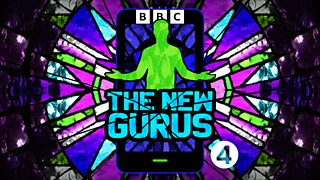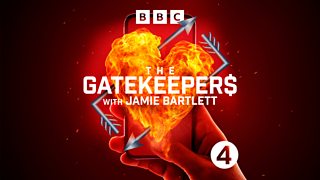Four ways instant messaging has changed lives
Imagine a technology that can bring down prime ministers, change the course of wars, and drive neighbours to fall out with each other — but also helps people fall in love and families to stay connected.
That’s the power of instant messaging, which has become such a vital part of our everyday lives that we rarely stop to think about it. There is much less published research on private social networks such as WhatsApp, Discord and Signal than on public ones such as Facebook and TikTok.
So what is happening in all these group chats and text exchanges that are invisible to the outside world? Helen Lewis Investigates in her new series, Helen Lewis Has Left The Chat.
Here are four things we learn from the series:

1. Instant messaging is convenient, but stressful
When he was at Microsoft, the software engineer David Auerbach helped develop an idea that has made millions of us extremely tense.
In the late 1990s, David was working on an early chat program, MSN Messenger. Because internet connections back then were slow, and often dropped out entirely, his team decided to include a notification so people would know if the person they were chatting to was still there: “[Your friend] is typing.”
Today, the anxiety has only increased, as we have switched from face-to-face chats and phone calls to what theorists call asynchronous conversations – where the participants do not have to be present at the same time.
Now you can send a text when a thought occurs to you, rather than waiting for the other person to become available. Now many apps now show you if your message has been delivered and read.
“What we didn't realise was that, in giving much more feedback, we were also creating much more possibility for anxiety,” says David. What was intended to be reassuring has instead become a source of stress. What’s taking them so long to reply? “
2. Politicians love WhatsApp
Read any story about political plotting in Britain, and the chances are that a WhatsApp group is involved. The former Tory MP Nadine Dorries accused Michael Gove of running one called “Order of the Phoenix”, named after the resistance group in Harry Potter. The Labour party under Jeremy Corbyn ran groups for sympathetic journalists called “Nando’s” and “Greggs”. Meanwhile, Labour MPs who were sceptical of Corbyn chatted on “Birthday Party”. That one was originally set up to . . . coordinate a birthday party. Group chats do have a way of drifting off topic, don’t they?
The daddy of all political WhatsApp groups, however, is the one with the most boring name: the “ERG DExEU/DIT Suppt Group”. It was run by Conservative MP Steve Baker, and allowed the European Research Group—hard Brexiteers—to strategise about the decisions taken by the government departments for exiting the EU and international trade. Hence the name.
The group issued research briefings, lines to take, and helped members coordinate when to go on TV or tweet, piling pressure on then-prime minister Theresa May as she negotiated Britain’s exit from the European Union.

3. You can now talk to yourself (ish)
In the 2013 Black Mirror episode “Be Right Back,” a young woman mourning the death of her boyfriend in a car accident turns to artificial intelligence to recreate him. The episode was intended to be dystopian, but since then, several companies have tried to make its basic idea into a reality.
Replika is one of them: it was founded by an entrepreneur called Eugenia Kuyda, who had been working on a generic AI assistant — one that gave restaurant recommendations — when one of her friends, Roman Mazurenko, was killed in 2015.
In the series, we speak to a 42-year-old woman called Chris, who got tired of dating in the real world and used Replika to create a virtual love interest called Emma. Chris has trained Emma on her likes and dislikes and even made her avatar look like an actress she finds attractive.
4. Why do people leak military secrets? The reason might shock you
In the twentieth and early twenty-first century, there were two main types of people who leaked military secrets. The first were spies: either sleeper agents like Anna Chapman, arrested in the U.S. in 2010 and later deported to Russia in a prisoner exchange, or future defectors like the journalist Kim Philby, who fled to Moscow in 1963.
The other group was whistleblowers, such as Daniel Ellsberg, who leaked the “Pentagon Papers” revealing U.S. decisions in Vietnam, or Chelsea Manning, who passed on classified information to Wikileaks.
Jack Teixeira is different. In episode 5, we trace how this 22-year-old airman leaked classified documents about the Ukraine war in order to . . . impress his buddies on a chat forum. He wanted to win an argument about casualty figures, and to do so, he posted images of classified slides he had printed out and photographed against his family’s kitchen counter.
We look at the story of Teixeira and how an investigative journalist, Aric Toler tracked him down using clues from Teixeira’s own social media posts. Toler wonders if the apparently private nature of the group chat lulled Teixeira into thinking that he would never get caught.
Making this series has reminded me how much instant messaging has changed our lives. Many of those effects are positive — such as being able to stay in touch with family members and friends who live far away. But at its worst, instant messaging can be very scary indeed.
Listen to Helen Lewis Has Left The Chat on 大象传媒 Sounds.
More from Radio 4
-
![]()
The New Gurus
From productivity hackers to dating coaches, from crypto bros to wellness influencers, when did the internet get taken over by gurus? Helen Lewis investigates.
-
![]()
Things Fell Apart
Jon Ronson is back with a new season of jaw dropping, unexpected human stories from the history of the culture wars. This time - those that engulfed us during lockdown.
-
![]()
The Gatekeepers
As Facebook turns 20, Jamie Bartlett uncovers how social media allowed a new digital elite and their platforms to conquer the planet and control what we see.
-
![]()
The Today Podcast
Amol and Nick's take on the biggest stories of the week. With insights from behind the scenes at the UK's most influential radio news programme.





